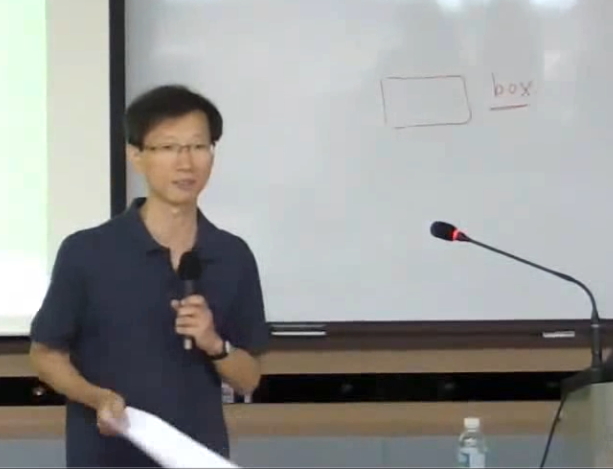중국모델은 독자적으로 존재하며 나아가 다른 제3세계에서도 채택될 수 있는 보편성을 지닌 모델이 될 수 있는가? 중국 내 많은 학자들은 현중국 체제는 중국이 수천 년 동안 축적한 역사적 ...
http://chineseinput.net/에서 pinyin(병음)방식으로 중국어를 변환할 수 있습니다.
변환된 중국어를 복사하여 사용하시면 됩니다.
- 中文 을 입력하시려면 zhongwen을 입력하시고 space를누르시면됩니다.
- 北京 을 입력하시려면 beijing을 입력하시고 space를 누르시면 됩니다.
https://www.riss.kr/link?id=A103136695
- 저자
- 발행기관
- 학술지명
- 권호사항
-
발행연도
2017
-
작성언어
-
- 주제어
-
KDC
330
-
등재정보
KCI등재
-
자료형태
학술저널
-
수록면
151-189(39쪽)
-
KCI 피인용횟수
0
- DOI식별코드
- 제공처
- 소장기관
-
0
상세조회 -
0
다운로드
부가정보
국문 초록 (Abstract)
중국모델은 독자적으로 존재하며 나아가 다른 제3세계에서도 채택될 수 있는 보편성을 지닌 모델이 될 수 있는가? 중국 내 많은 학자들은 현중국 체제는 중국이 수천 년 동안 축적한 역사적 경험에서 나오는 것으로 중국 현실에 가장 적절한 중국적 특색의 발전모델이라 보았다. 중국모델은 근본적으로 중국의 사회주의체제가 고도 경제성장을 이룬 결과를 설명하는 모델이다. 중국모델은 중국이 2008년 세계 경제위기를 슬기롭게 극복하고 지속적인 고도 경제성장을 기록함으로써 대안모델로 급부상하고 있다. 그러나 세계 경제위기가 장기간 계속됨에 따라 설비투자 증대를 통한 과잉 수출에 의존하던 중국의 경제성장은 한계를 보이고 있다. 중국모델은 근본적으로 중국의 경제성장을 전제로 하는 모델인 만큼 경제성장이 둔화되면 중국모델 신화도 사라질 가능성이 크다. 또한 중국 인민들이 정치적 자유가 제한됨에도 크게 반발하지 않는 이유는 권위주의적인 공산당 일당 통제 하에서 중국이 지속적으로 고도 경제성장을 이룩하여 인민들의 물질적 생활 향상을 지속해왔기 때문이다. 그러나 중국의 경제성장이 멈출 때 중국모델의 지속 가능성은 시험대에 오르게 될 것이다. 현재 중국모델이 주장하는 권위주의적 정부와 시장경제의 결합은 아직 완성된 대안모델이라기 보다는 진행형의 모델이다. 권위주의적 사회주의 체제에서의 시장경제 발전은 완성된 체제이기보다는 더 나은 체제로 가기 위한 과도기적 체제일 가능성이 크다. 아직 고도경제성장이 지속되는 현 시점에서 정치개혁을 추진하여 정치적 민주화를 이룩하는 것이 차후에 중국의 경제성장이 멈추어 설 때 나타날 수 있는 정치·경제적 혼란을 줄일 수 있는 최선책일 것이다.
다국어 초록 (Multilingual Abstract)
Does a Chinese model exist and is it possible to be applied the Third World as a general development model? Many of the Chinese scholars claim that the present Chinese system has arizen from the long-standing cultural experiences being accumulated thr...
Does a Chinese model exist and is it possible to be applied the Third World as a general development model? Many of the Chinese scholars claim that the present Chinese system has arizen from the long-standing cultural experiences being accumulated through the long history and is the most suitable development model to China today representing the unique Chinese characteristics. But it has the alternative to be criticized just to support the authoritarian regime dominated by the Communist Party that had achieved rapid and long-standing economic development without political democratization. Beijing Consensus raised Chinese model as an alternative model replacing the failed Washington Consensus of the neoliberalism. Thereafter Chinese model has developed as an alternative development model replacing the Western experience of modernization. But the Chinese model is not unchangeable. The major characteristics of Chinese model have been revised and changed endlessly through the change of global situations, international relations, and that of power relations inside of China. The Chinese model is basically a model being developed through the development with the Chinese economy. Chinese economy dealt successfully with the world recession in the first few years by enhancing equipment investment to increase export. But as the world recession has continued a long term Chinese economic growth showed its limit. As the Chinese model was fundamentally premised on the sustaining China’s economic growth the recession of Chinese economy might have the chance to disappear the myth of Chinese model. The conjunction of the authoritarian government with the market economy in the Chinese model is not yet firmly completed but is still progressive. The development of market economy under the authoritarian socialist regime might be a transitional system to go for a better system. But trying to achieve the political democratization would be the best choice to reduce the economic and political confusion in the future when the Chinese economy comes to a halt with recession.
목차 (Table of Contents)
- I. 들어가는 글
- II. 중국모델의 성립 과정
- III. 베이징 컨센서스와 워싱턴 컨센서스
- IV. 중국 발전모델의 세계화
- V. 후진타오·시진핑 시기의 발전
- I. 들어가는 글
- II. 중국모델의 성립 과정
- III. 베이징 컨센서스와 워싱턴 컨센서스
- IV. 중국 발전모델의 세계화
- V. 후진타오·시진핑 시기의 발전
- VI. 나오는 글
- 참고문헌
참고문헌 (Reference)
1 박광득, "후진타오와 시진핑 체제의 비교와 향후 과제에 대한 연구" 대한정치학회 21 (21): 165-189, 2013
2 주용식, "중국식 발전모델"
3 프랜시스후쿠야마, "중국식 모델 수출하기" 113 (113): 2016
4 이민자, "중국모델론: 개혁과 발전의 비교 역사적 탐구" 부키 2008
5 전성홍, "중국모델론: 개혁과 발전의 비교 역사적 탐구" 부키 2008
6 김도희, "중국모델론: 개혁과 발전의 비교 역사적 탐구" 부키 77-108, 2008
7 윤경우, "중국 지식인 사회의 ‘중국모델’ 담론" 국민대학교 중국지식네트워크 1 : 275-293, 2011
8 이정구, "중국 발전국가론에 대한 비판적 검토" 국제지역연구원 19 (19): 69-103, 2012
9 이정구, "중국 모델에 대한 비판적 고찰" 31 : 2013
10 김시중, "중국 경제성장의 고유 모델은 존재하는가? 워싱턴 컨센서스 대 베이징 컨센서스 논란" 67 : 22-24, 2012
1 박광득, "후진타오와 시진핑 체제의 비교와 향후 과제에 대한 연구" 대한정치학회 21 (21): 165-189, 2013
2 주용식, "중국식 발전모델"
3 프랜시스후쿠야마, "중국식 모델 수출하기" 113 (113): 2016
4 이민자, "중국모델론: 개혁과 발전의 비교 역사적 탐구" 부키 2008
5 전성홍, "중국모델론: 개혁과 발전의 비교 역사적 탐구" 부키 2008
6 김도희, "중국모델론: 개혁과 발전의 비교 역사적 탐구" 부키 77-108, 2008
7 윤경우, "중국 지식인 사회의 ‘중국모델’ 담론" 국민대학교 중국지식네트워크 1 : 275-293, 2011
8 이정구, "중국 발전국가론에 대한 비판적 검토" 국제지역연구원 19 (19): 69-103, 2012
9 이정구, "중국 모델에 대한 비판적 고찰" 31 : 2013
10 김시중, "중국 경제성장의 고유 모델은 존재하는가? 워싱턴 컨센서스 대 베이징 컨센서스 논란" 67 : 22-24, 2012
11 장공자, "제7장 차세대 지도자와 중국공산당의 역할변화" 한국통일전략학회 10 (10): 271-320, 2010
12 "연합뉴스, 2016년 10월 27일"
13 "아시아 경제, 2016년 10월 27일"
14 인민일보 평론부, "시진핑을 통해 진짜 중국을 만나다" 가나출판사 2016
15 이정남, "시진핑(习近平)지도체제의 등장과 중국의 정치개혁과 정치변화 전망" 아세아문제연구소 56 (56): 73-116, 2013
16 이춘복, "시진핑 시대 개혁 2.0 전망: 18기 3중전회 분석" 2 (2): 2014
17 헨리 샌더슨 마이클 포시드, "슈퍼파워 중국개발은행" 매일경제신문사 2014
18 김애경, "세계금융위기와 베이징컨센서스의 대외적 확산?" 동서문제연구원 22 (22): 007-036, 2010
19 김재철, "새로운 중국의 모색 I" 폴리테이아 2005
20 스테판 할퍼, "베이징 컨센서스: 중국의 경제모델은 21세기를 어떻게 지배할 것인가?" 21세기북스 2011
21 윤상우, "베이징 컨센서스 비판: 라모와 아리기의 논의를 중심으로" 아시아.유럽미래학회 11 (11): 167-187, 2014
22 조슈아 쿠퍼 레이모, "베이징 컨센서스" 아세아문제연구소 52 (52): 14-77, 2009
23 "동아일보, 2016년 10월 26일"
24 장윤미, "‘중국모델’에 관한 담론 연구" 현대중국학회 13 (13): 75-116, 2011
25 Joshua Cooper Ramo, "The Beijing Consensus" The Foreign Policy Center 2004
26 John Williamson, "Latin American Adjustment: How Much has Happened?" Institute for International Economics 1990
동일학술지(권/호) 다른 논문
-
도시공간 향유의 인스타그램 분석과정에 대한 행위자네트워크 이론적 해석
- 동양사회사상학회
- 이수안(Lee Su An)
- 2017
- KCI등재
-
- 동양사회사상학회
- 유승무(Lew Seung Mu)
- 2017
- KCI등재
-
- 동양사회사상학회
- 문정필(Moon Jung Pil)
- 2017
- KCI등재
-
- 동양사회사상학회
- 이황직(Yi Hwang Jik)
- 2017
- KCI등재
분석정보
인용정보 인용지수 설명보기
학술지 이력
| 연월일 | 이력구분 | 이력상세 | 등재구분 |
|---|---|---|---|
| 2027 | 평가예정 | 재인증평가 신청대상 (재인증) | |
| 2021-01-01 | 평가 | 등재학술지 유지 (재인증) |  |
| 2018-01-01 | 평가 | 등재학술지 유지 (등재유지) |  |
| 2015-01-01 | 평가 | 등재학술지 유지 (등재유지) |  |
| 2013-09-24 | 학술지명변경 | 한글명 : 동양사회사상 -> 사회사상과 문화외국어명 : Jonrnal of East Asian Social Thoughts -> Jonrnal of Social Thoughts and Culture |  |
| 2011-01-01 | 평가 | 등재학술지 유지 (등재유지) |  |
| 2009-01-01 | 평가 | 등재학술지 유지 (등재유지) |  |
| 2007-01-01 | 평가 | 등재학술지 유지 (등재유지) |  |
| 2006-03-06 | 학술지명변경 | 외국어명 : Jonrnal of Asian Social Thoughts -> Jonrnal of East Asian Social Thoughts |  |
| 2004-01-01 | 평가 | 등재학술지 선정 (등재후보2차) |  |
| 2002-01-01 | 평가 | 등재후보학술지 선정 (신규평가) |  |
학술지 인용정보
| 기준연도 | WOS-KCI 통합IF(2년) | KCIF(2년) | KCIF(3년) |
|---|---|---|---|
| 2016 | 0.84 | 0.84 | 0.84 |
| KCIF(4년) | KCIF(5년) | 중심성지수(3년) | 즉시성지수 |
| 0.8 | 0.83 | 1.569 | 0.23 |





 KCI
KCI 스콜라
스콜라







